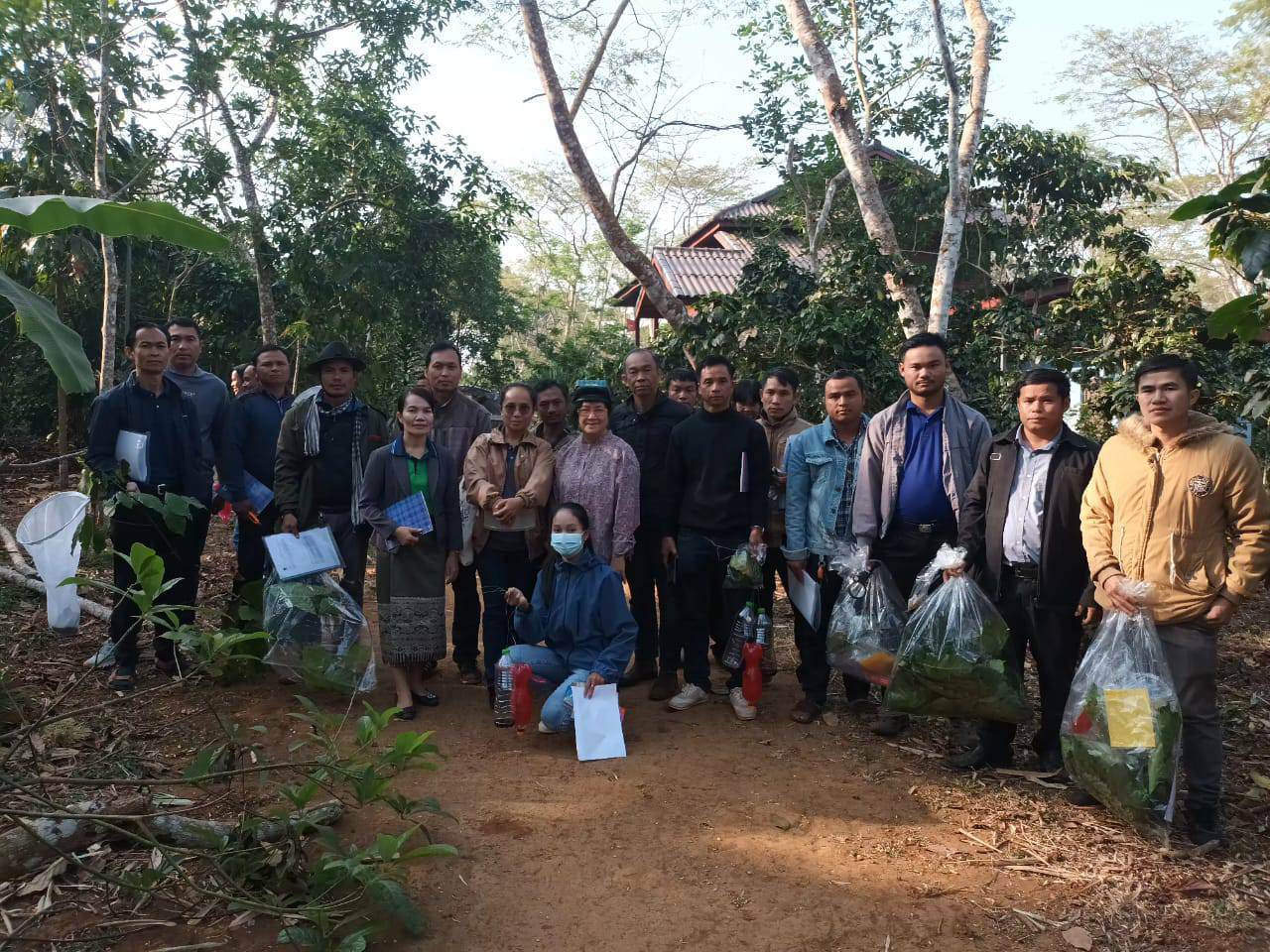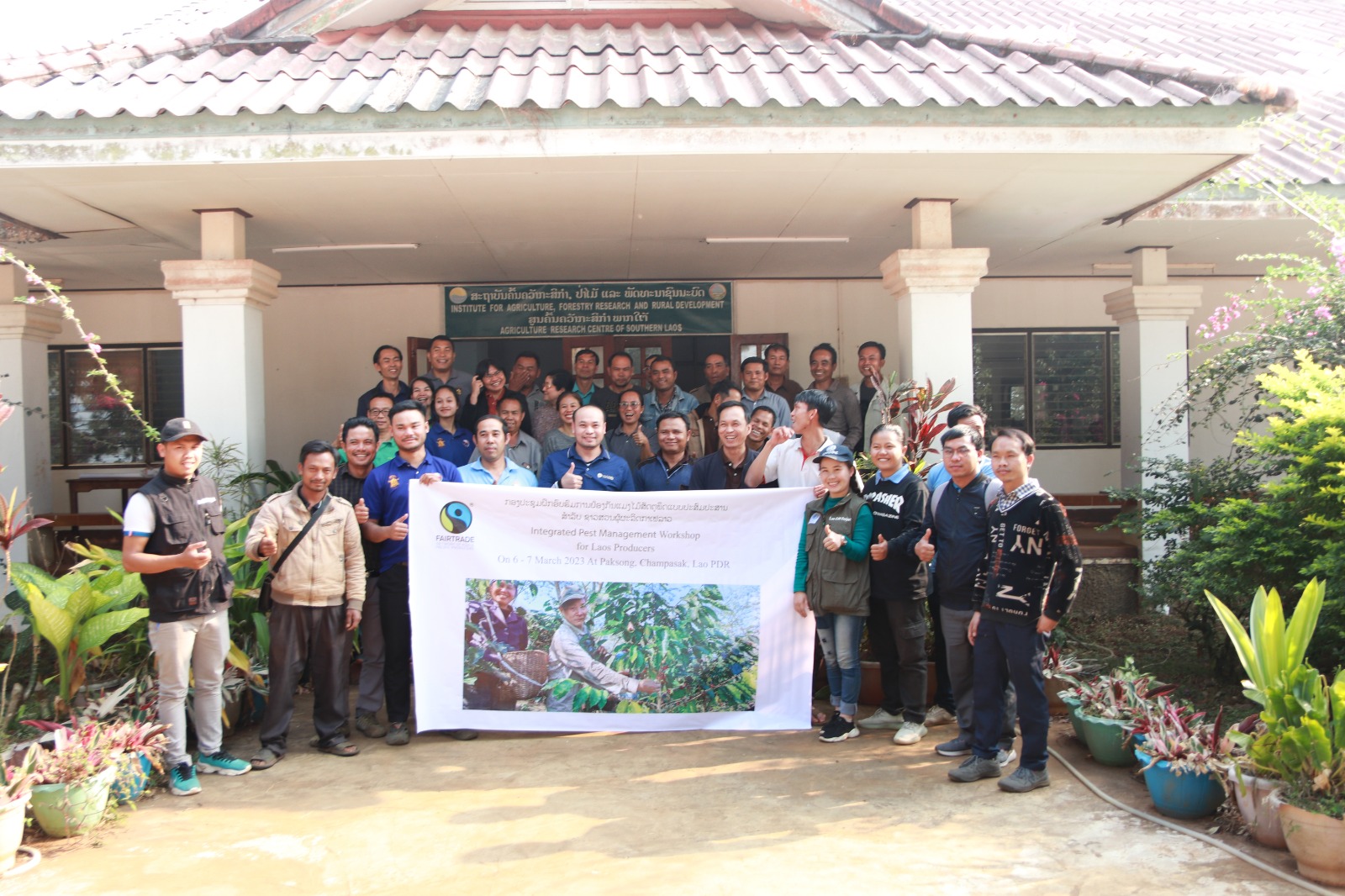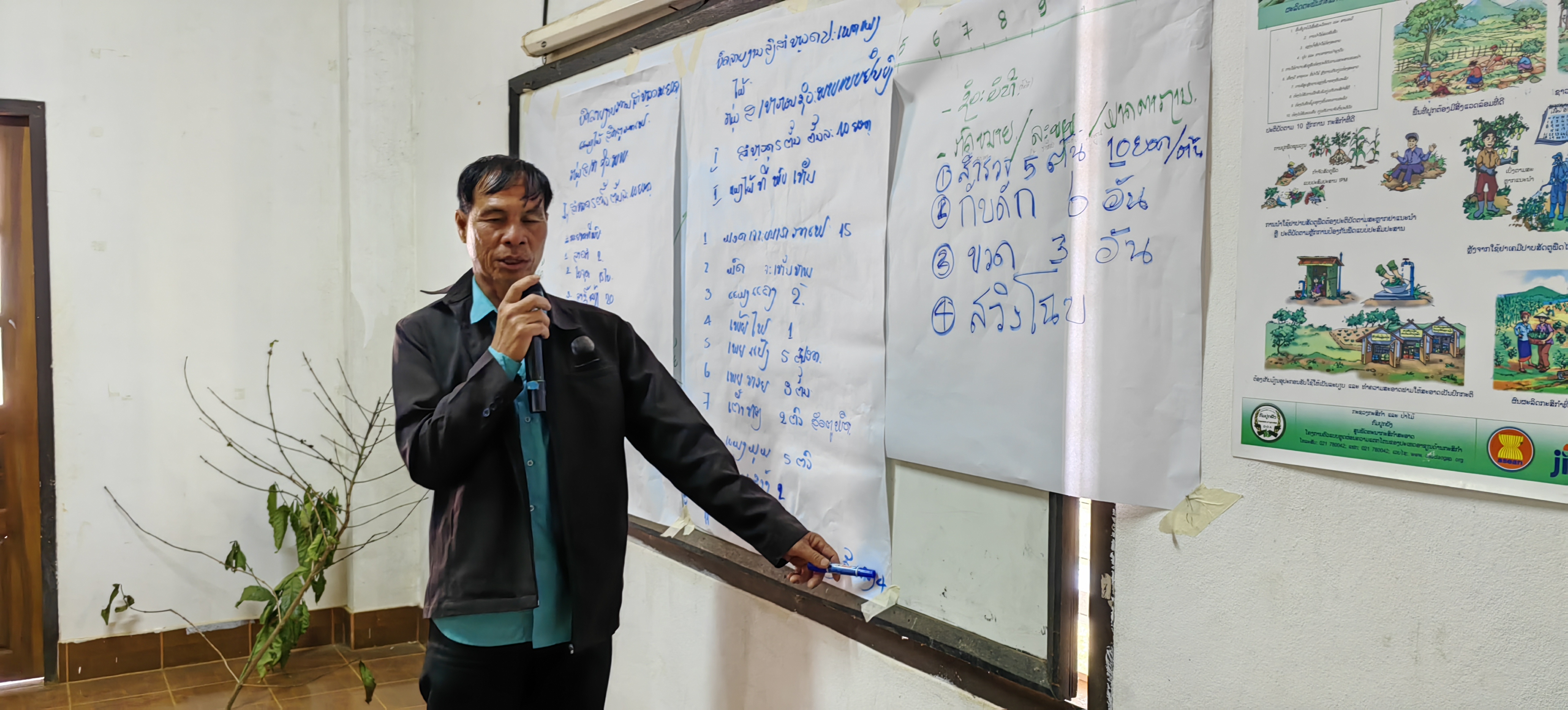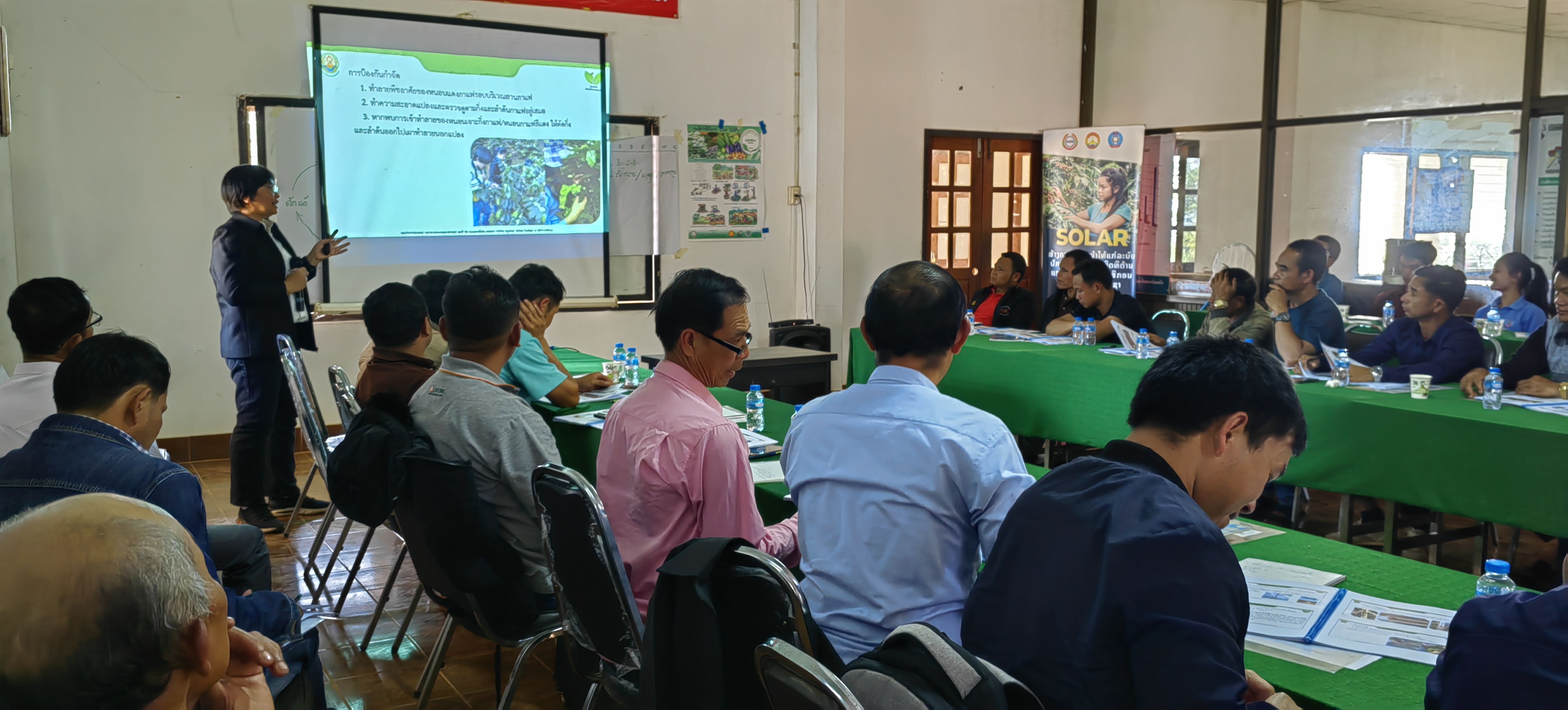
Lao coffee is grown in high elevation and cool climate areas, thus producing a good character and aroma coffee. The production of Lao coffee is estimated at 1 ton of green beans per hectare on average. During the past few years, coffee productivity and quality has gone down due to climate change which has caused higher temperature and weather changes followed by the invasion of new pests and diseases in the coffee crop.
With limited knowledge of insect pests and disease identification and management, the pest problem has become a big challenge for Lao farmers. It has caused fruit drop and crop damage. The production volume has gone down around 30-50% which means farmers make a low income for their families making it unaffordable to buy inputs to nurture the coffee plant for the next year production. It is expected that productivity will decline further, year after year.

To help the farmers tackle the problem, an Integrated Pest Management Workshop was organized by Fairtrade NAPP for the Producers in Laos under the Coffee Development Plan funded by Max Havelaar Switzerland. The training aims to improve the knowledge of coffee growers on insect pests and diseases that are causing crop losses. The producers will learn to identify the problems and decide when and how to make plans for adequate farm management. This project aims to improve the income and livelihood of Fairtrade members.
The trainees included 28 members from 3 cooperatives in Laos: Coopérative des Producteurs de Café du Plateau des Bolovens (CPC), Cooperative of Sustainable Eco Coffee (CSEC) and Vanmai Coffee Cooperative (VCC), and 10 participants from various stakeholders providing support to the cooperatives (Agronomy department, Agriculture Research Center of Southern Lao, Agriculture university, and Coffee developer).
On the first day, the members were provided with basic information about coffee bioecology and the integrated pest management topic. This was followed by the good agricultural practices for coffee crops to improve coffee productivity. The coffee pests and diseases that cause damage to crop production were presented and discussed during the workshop. The trainees were provided with real samples of infected plant parts and insect pests. Moreover, the beneficial insects and bioagents for biocontrol have been offered as an alternative control method for coffee farming.

In the last session, the trainees were given field monitoring tasks for the next day’s activity. They were divided into 5 groups and asked to prepare insect traps and install in 5 locations in the coffee orchard.


The trainers then visited the coffee orchard to survey the pest infestation and prepare it for the training session. All data on pests and diseases collected were then discussed at the training centre. After the data assessment, each group made a presentation and presented it to the workshop.


In the afternoon, the trainees arrived at the training centre and received the course introduction on coffee crop calendar. The trainees were engaged in discussions on the crop management practices by farmers of their area.
A few key recommendations were made by the trainers to the farmers:-
- Soil fertility is important and helps coffee to be healthy. Farmers should add compost into the soil at 5 kg per plant, as per DOA recommendation.
- Irrigation at the right timing of coffee development will help to increase coffee productivity. Critical stages are for example flowering, fruit set, and fruit development.
- Field observation is necessary for the whole season. The infested plant parts and/or insect pests must be removed for disposal immediately when found to avoid pest establishment.
- Pheromone traps and sticky traps can be used as alternative methods for adult pest control. The yellow sticky trap should be avoided as it also attracts natural beneficial insects.
- Pruning is a technique to rejuvenate the old coffee tree for increasing productivity and as well to get rid of the infested plant parts and pest.
- For an effective use, the bioagent such as Beauveria and Metarhizium must be applied under favourable conditions such as cool and humid weather. The bioagent used must be active and powerful, thus it should be sourced from a certified company.
The training has helped the farmers to learn about integrated pest management for organic coffee farming, to identify the causes of pests infestations and solutions for pests control methods. The farmers are now well equipped to transfer the knowledge to other members in their organisation and community. A training manual was also developed for the farmers to use as a tool for imparting training to others. A joint discussion was also held for planning the CDP project for the second year.

Farmer members share their experience:
“The training has helped the participants to recognize the pests and diseases in the farm. Prior to the training, the farmers thought that they were facing an unknown new disease. Through the training it has helped them realise that there are more underlying causes to the problems and not the new disease as they thought.”
“While the participant has learned about the IPM technique and bio-agents which can be applied for pest control, these bio-agents are not available in Lao. Therefore, it would be good if the CDP project can support them to learn about proper application and bioagent mass production, for farm use.”
“We will start monitoring the pest infestations on our field and transfer the knowledge to our members.”




